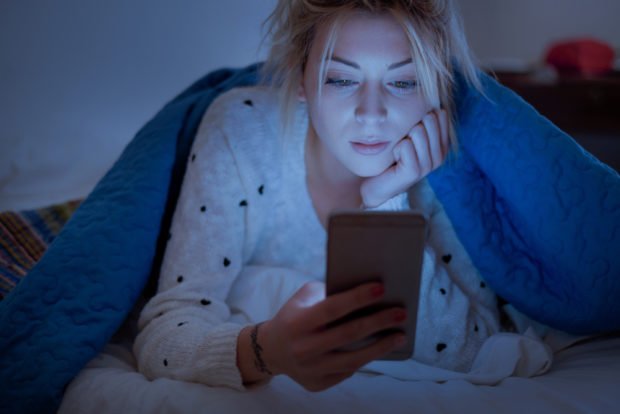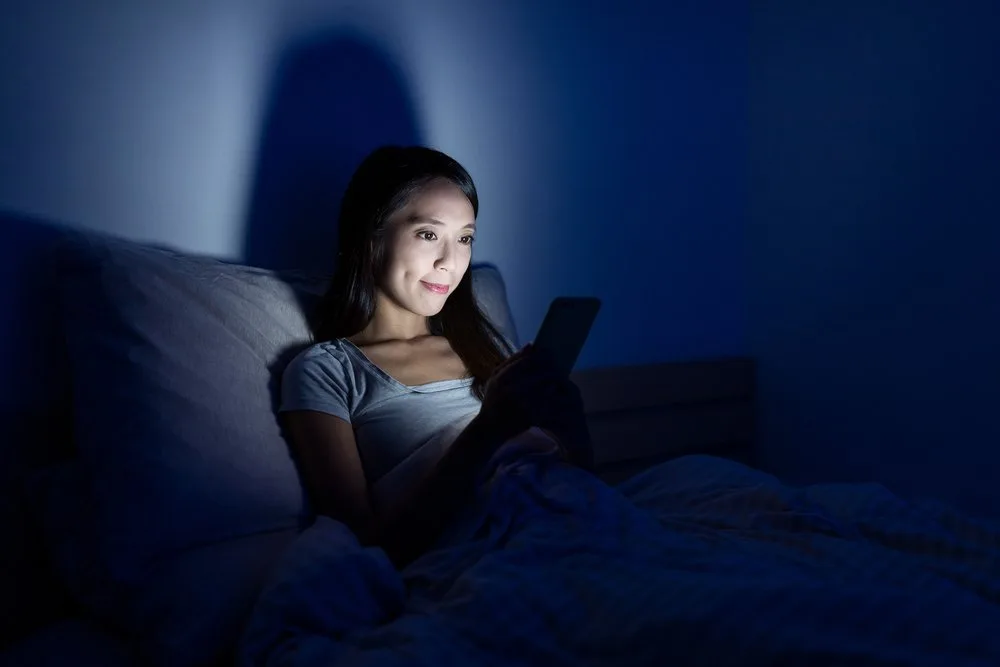There are already plenty of precautions advising against the excessive use of electronics. Various studies have highlighted the effects of high cellphone use. This includes poor sleep patterns, heightened stress levels, and even symptoms of depression. If that’s not enough, there is now growing research on how high cellphone usage can accelerate the aging process. So how does HEV light fit into the picture?
HEV light and UV rays
HEV light (blue light) stands for High Energy Visible Light, and it is the light that is emitted from the sun as well as any other form of technological device – be it phones, tablets, or computers. Moreover, reflective surfaces like glass, water, and concrete are sources of HEV light.
While we’re not going to delve into the semantics of the sun’s rays, it’s important to take note of the following:
- While the sun does produce us with much-needed vitamin D, we all need to properly protect ourselves against the harmful effects of both UVA and UVB rays.
- UVA rays can cause photo-aging whereas UVB rays can cause sunburn. UVB rays also play a key role in the development of skin cancer.
- UVB rays penetrate the epidermis, which is the outermost layer of skin, whereas both HEV light and UVA rays, penetrate into the dermis- the lower layers of skin. However, HEV light has yet to be linked to skin cancer.
While we’ve always been advised to protect ourselves against UVB and UVA rays, studies have shown how overexposure to HEV light can increase the risk of wrinkles, fine lines, and hyper-pigmentation.
HEV light and the skin
While this light can boost alertness and improve memory, it does have a questionable effect on the skin.
HEV light penetrates deep into the skin and this then allows for it to generate free radicals. These radicals can lead to a loss of firmness and the formation of wrinkles.

According to a study published in the peer-reviewed journal Pigment Cell & Melanoma Research, HEV light can stimulate hyperpigmentation when compared to UVB radiation.
Medical aesthetician Kate Kerr explained to Byrdie magazine how HEV light can induce pigmentation. A melanin-forming skin cell (melanocyte) is designed to protect the skin from light. When the skin is exposed to high levels of light, melanocyte kicks into gear and begins depositing melanin into surrounding skin cells. This can result in non-specific discoloration.
HEV light can also affect beauty sleep and eyesight. If you sleep with your phone on the bedside table, the light it emits can disrupt your natural circadian rhythm. Thus this can make it extremely difficult to not only fall asleep but also get quality sleep when you finally do.
Protecting against HEV light
A few beauty companies have already taken heed from marketing products that can protect against HEV light. However, there are other ways in which you can protect your skin against HEV light, without relying on your favorite beauty brand.
Use sunscreen
Using a broad-spectrum sunscreen free of oxybenzone is the perfect way to protect your skin against UVB and UVA rays. Unfortunately, this type of sunscreen rarely protects against HEV damage. While HEV damage has become a talking point, there are not enough beauty products out there to protect against it.
When choosing sun-care products, be on the lookout for those that contain HEV light blocker melanin and topical lutein.
Using antioxidants
When it comes to protecting against free radical damage, topical antioxidants are the best tools.
In regards to combating HEV light damage, the best antioxidants to look out for are Licochalcone A and Glycyrrhetinic Acid. These two antioxidants can both penetrate deep into the epidermis to protect skin cells.
Licochalcone A is derived from the root of the Chinese Liquorice plant and contains anti-inflammatory properties which can neutralize free radicals. Glycyrrhetinic acid also contains anti-inflammatory properties, but it can also support the skin’s own DNA repair mechanisms.
Blue light shield

Fortunately, a few smartphones already have this feature.
Often known as night mode or night shift, this feature dims the effect of blue light. However, this feature is rarely available on both your laptop and television. In this case, investing in a pair of computer glasses would be the way to go. These yellow-tinted shades block HEV light. If you’d rather not wear these glasses then you can try installing HEV light-blocking covers instead.



![women [longevity live]](https://longevitylive.com/wp-content/uploads/2020/01/photo-of-women-walking-down-the-street-1116984-100x100.jpg)










